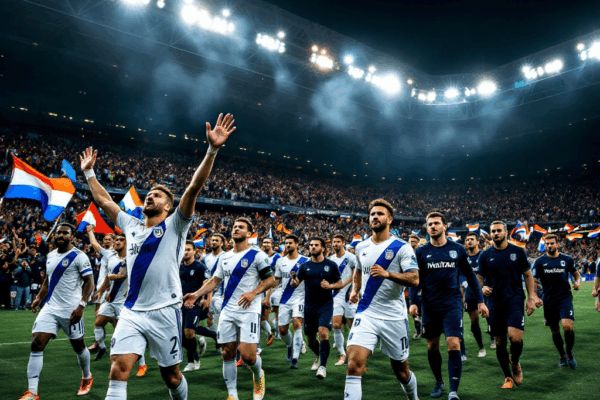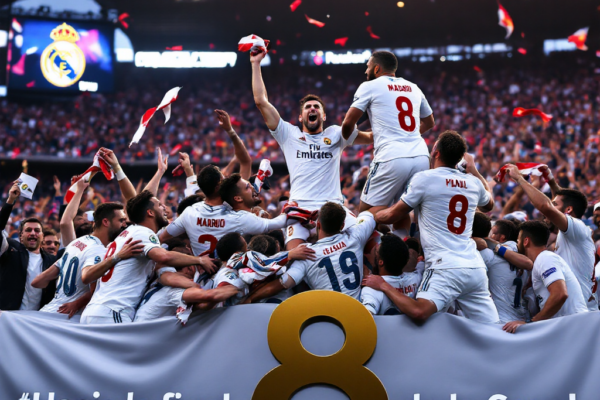A Heated Opening Night: The 1st 2025 Presidential Debate — Kwon Young-guk’s Stormy Offensive
Just before the debate, an intense pressure that felt suffocating swept across the nation. Four presidential candidates gathered in the SBS studio, their eyes burning with a resolute determination to win. And finally, in front of the entire country, the curtain rose on the first televised debate.
Starting with economic policy, the discussion quickly morphed into a battlefield of political conflict. At the heart of it stood candidate Kwon Young-guk. His unexpected offensive shook the debate stage, unleashing bombshell declarations that threatened to reshape the entire presidential race.
“Kim Moon-soo, proxy of Yoon Seok-youl, the mastermind of the rebellion, must resign immediately!”
With this explosive remark, Kwon Young-guk instantly flipped the atmosphere of the debate. His sharp critique targeted Kim Moon-soo, but it was in reality aimed at the entire conservative camp. Referencing the December 3rd rebellion incident, Kwon directly challenged Kim Moon-soo’s qualifications.
In response, Kim Moon-soo admitted, “The martial law was wrong,” but countered that the term “rebellion” requires judicial review. Yet Kwon’s relentless assault did not waver.
“You must take responsibility for the economic damage caused by martial law. People of the nation, please vote these candidates out!”
Kwon Young-guk’s statement transcended mere political sparring, carrying a seismic impact capable of overturning the entire presidential landscape. The debate on economic policy had now devolved into an argument over political accountability and morality, promising major ramifications for future election strategies.
That night, Kwon firmly stamped his presence on the scene. All eyes now watch how voters will receive his aggressive tactics and what shifts this may induce in the presidential race. One thing is certain: the fiery passion surrounding the 2025 presidential election has ignited hotter than ever after this debate.
Kwon Young-guk’s Direct Confrontation: Justice for Whom?
“You are an agent of Yoon Seok-youl, the leader of sedition!” This shocking statement by candidate Kwon Young-guk during the first 2025 presidential debate sent shockwaves through the political arena. What hidden truths and strategies lie behind his daring attack against opponent Kim Moon-soo?
Kwon Young-guk’s Strategy: A Head-On Breakthrough
Kwon, the Democratic Labor Party candidate, displayed an unexpectedly tough stance in this debate. His primary target was Kim Moon-soo of the People Power Party. Kwon linked Kim to former President Yoon Seok-youl and held him accountable for the attempted imposition of martial law in 2023. This was not merely a policy critique but a direct assault on political credibility.
The Truth Game: The Shadow of Martial Law
Kwon focused intensely on the “December 3rd sedition incident.” He emphasized the devastating economic impact of the event and demanded responsibility from Kim Moon-soo. Claiming that “the entire flow of small business owners, tourism, consumption, and investment was disrupted,” his remarks struck a chord with many voters.
In the Name of Justice: Kwon’s Message
Kwon’s attack carried the powerful message of “realizing justice.” He called for accountability for past political incidents and positioned himself as a defender of justice. This approach resonates strongly with progressive voters and serves as a compelling strategy.
A Double-Edged Sword: The Strategy’s Fate
However, this strategy can be a double-edged sword. While Kwon’s strong stance may energize progressive supporters, it risks being perceived as excessive political aggression by moderate voters. How he adjusts this strategy in future debates will be closely watched.
Kwon Young-guk’s bold confrontation has become a game-changer in the 2025 presidential race. Whether his remarks remain mere political rhetoric or lead to genuine justice will become clearer as the election unfolds. Voters now face the critical question: Justice for whom?
Beyond Political Squabbles: Kwon Young-guk’s Economic Debate Strategy and the Limits of Factional Conflict
Why did a debate on economic policy swiftly spiral into a controversy over rebellion? The intensity in the debate hall escalated, leaving viewers bewildered amidst a lost policy competition.
Kwon Young-guk’s Aggressive Debate Tactics
Candidate Kwon Young-guk transformed the economic debate into a political attack arena. His approach went beyond discussing economic policies—he targeted the credibility of his opponents. Notably, he labeled candidate Kim Moon-soo as “the proxy of Yoon Suk-yeol, the mastermind behind the rebellion,” connecting economic issues directly to political scandals.
The Politicization of Economic Debate
The original intention to discuss ‘overcoming low growth and revitalizing the economy for people’s livelihood’ was pushed aside. Instead, the economic effects of the December 3 rebellion incident and martial law took center stage, clouding the true essence of economic policy debate.
Deepening Divides Between Camps
Kwon’s aggressive remarks further intensified the rift between progressive and conservative factions. Rather than fostering cooperation to address economic challenges, the focus shifted to blaming opponents, undermining a constructive debate environment.
Voter Confusion
As debates devolved from policy scrutiny to political brawls, voter confusion deepened. It became difficult to objectively compare candidates’ economic policies and visions, while political scandals and historical disputes dominated discussions.
Challenges for Future Debates
This debate highlighted both the importance of discussing economic policies and the need to address political accountability. Future debates must balance detailed policy proposals with fair explanations of candidates’ past political conduct.
As Kwon Young-guk’s strategy demonstrated, economic issues are not merely about numbers and policies. However, overemphasis on political combat risks losing sight of practical economic solutions. A more balanced approach is vital for upcoming debates.
Progressives and Conservatives, Their Own Game? How Kwon Young-guk’s ‘Hardline Offensive’ Changed Public Opinion and the Presidential Race
The intense standoff between progressives and conservatives, followed by a surge of online reactions after the debate! Amid the tension between ‘hardline offensives’ and ‘legal judgments,’ where is public sentiment truly headed? Kwon Young-guk’s unexpected ‘direct strike’ during the first TV debate is sending shockwaves through the presidential race.
Kwon Young-guk’s ‘Hardline Offensive’: Rallying Progressive Supporters vs. Fear of Losing the Moderates
Kwon Young-guk’s aggressive remarks have garnered enthusiastic support among progressive voters. Especially on social media, comments like “Refreshing” and “Finally someone who speaks properly” are dominating. However, concerns are rising that such a hardline stance may alienate moderate voters instead.
Conservatives’ ‘Legal Judgment Respect’: Prudence or Avoidance?
Candidate Kim Moon-soo’s emphasis on respecting ‘legal judgments’ seems to bring comfort to conservative supporters. Yet, some interpret this as an attempt to shirk responsibility, revealing divisions even within conservative ranks. The impact of this approach on the upcoming election remains closely watched.
Online Public Opinion: Has the Debate Turned into a Battle of Negativity, Leaving Policies Behind?
Following the debate, discussions across online communities and social media have focused more on Kwon Young-guk’s statements than on economic policies. Some netizens express disappointment, saying, “The crucial economic issues were barely discussed.” This trend may complicate voters’ ability to make informed policy decisions.
Future Presidential Race: Will It Shift from ‘Policy’ to a Battle over ‘Personalities’?
Thanks to Kwon Young-guk’s offensive, the presidential contest is swiftly pivoting from policy competition to character scrutiny. This shift is expected to influence voters’ criteria for choosing candidates. How each candidate balances this in upcoming debates and how voters’ perceptions evolve are matters to watch keenly.
The presidential landscape is shaking dramatically following this debate. Whether Kwon Young-guk’s ‘hardline approach’ will translate into votes or backfire makes the path ahead even more crucial. Voters, how are you viewing this unfolding situation?
Questions of a New Era: Preparing for the Next Debate with Kwon Young-guk
Will the first debate leave us with confusion, or a signal of change? Now, voters demand not just attacks, but concrete policies and responsible answers. Who will be the true winner in the remaining presidential debates?
Kwon Young-guk’s Challenge and Voters’ Expectations
Kwon Young-guk’s strong statements became the hot topic of the first debate. His strategy focused on attacking opponents’ credibility, but now voters want more. Concrete policy proposals and feasible visions will be the key tasks for the next debate.
A New Horizon for Policy Discussions
Unlike the first debate, which started on economic issues and turned into political skirmishes, upcoming debates are expected to highlight each candidate’s policy capabilities more seriously. All candidates, including Kwon Young-guk, will be watched closely for how they present specific solutions to national economic and livelihood problems.
Voters’ Voices Shift the Direction of the Debate
Voters’ reactions after the first debate are clear: they no longer want political quarrels but real plans for the nation’s progress. This presents a new challenge for Kwon Young-guk and all candidates alike. The upcoming debates will hinge on how well each candidate listens to the public and offers policies that reflect their concerns.
Winds of Change, The Beginning of New Politics
Through the first debate, we felt the urgent need for change. The ripple effect of Kwon Young-guk’s provocative remarks goes beyond mere political controversy; it signals a demand for fundamental transformation in our politics. The new images candidates present in future debates, and the voters’ responses, could mark the true beginning of political innovation.
As we move forward with the remaining debates, we will gain clearer insight into what true leadership means and who is best suited to lead the future of South Korea. Voters, don’t miss this crucial moment. Our choice will decide the destiny of the Republic of Korea.




